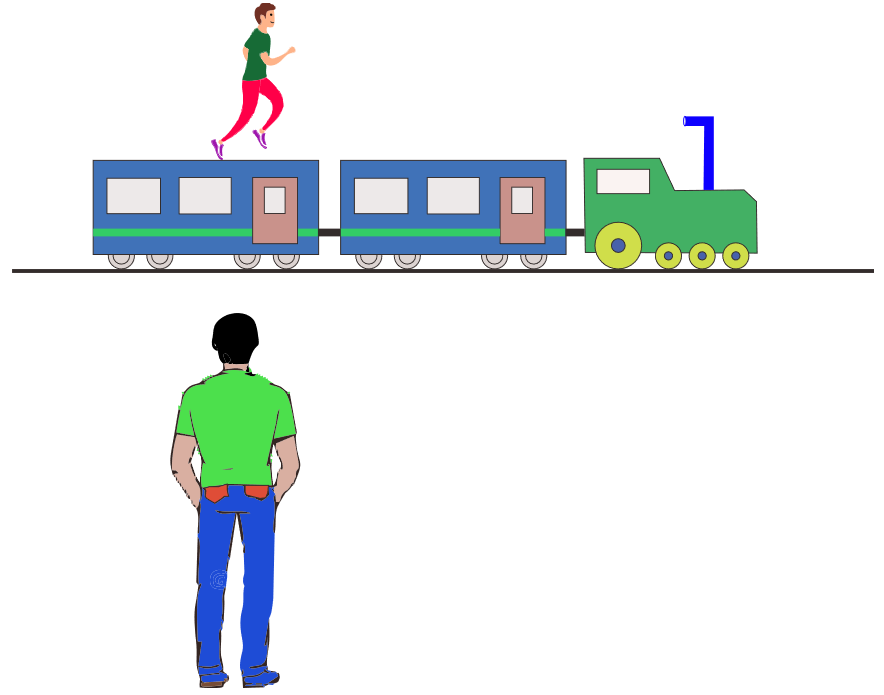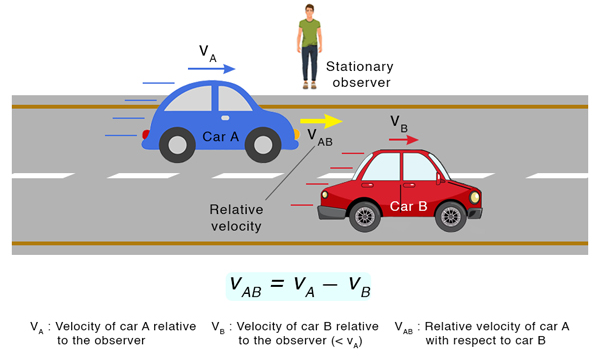IB MYP 4-5 Physics- Relative Motion- Study Notes- New Syllabus
IB MYP 4-5 Physics- Relative Motion- Study Notes
Key Concepts
- Relative Motion
Relative Motion
Relative Motion
Relative motion refers to the observation of the motion of an object with respect to another moving or stationary object (called the reference frame).

The velocity of one object as seen from another is called its relative velocity.
Concepts in Relative Motion
- Motion is always measured relative to a frame of reference.
- If two objects are moving in the same direction, their relative velocity is the difference of their velocities.
- If they are moving in opposite directions, the relative velocity is the sum of their velocities.
Relative Velocity Formula
Let two bodies A and B have velocities \( \vec{v}_A \) and \( \vec{v}_B \), then the velocity of A relative to B is:

\( \vec{v}_{AB} = \vec{v}_A – \vec{v}_B \)
And the velocity of B relative to A is: \( \vec{v}_{BA} = \vec{v}_B – \vec{v}_A = -\vec{v}_{AB} \)
Cases of Relative Motion
- Same direction: \( v_{AB} = v_A – v_B \)
- Opposite direction: \( v_{AB} = v_A + v_B \)
Example:
Two cars are moving in the same direction on a straight road. Car A is moving at \( 20\,\text{m/s} \), and Car B is ahead of A, moving at \( 15\,\text{m/s} \). What is the velocity of Car A relative to Car B?
▶️ Answer/Explanation
\( v_A = 20\,\text{m/s},\ v_B = 15\,\text{m/s} \)
Since they move in the same direction:
\( v_{AB} = v_A – v_B = 20 – 15 = \boxed{5\,\text{m/s}} \)
Example:
A train moves east at \( 30\,\text{m/s} \), and a car moves west at \( 20\,\text{m/s} \). What is the velocity of the car as observed from the train?
▶️ Answer/Explanation
Take east as positive: \( v_{\text{train}} = +30\,\text{m/s},\ v_{\text{car}} = -20\,\text{m/s} \)
\( v_{\text{car rel train}} = v_{\text{car}} – v_{\text{train}} = -20 – 30 = \boxed{-50\,\text{m/s}} \)
(Negative sign indicates the car appears to move westward at 50 m/s relative to the train.)
